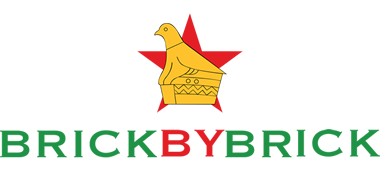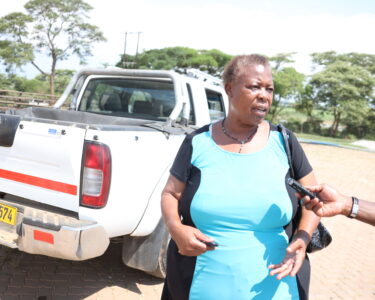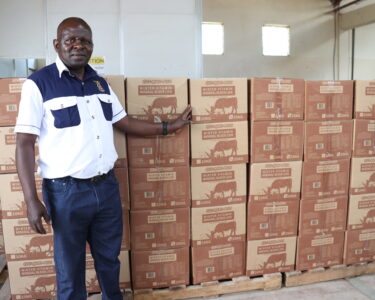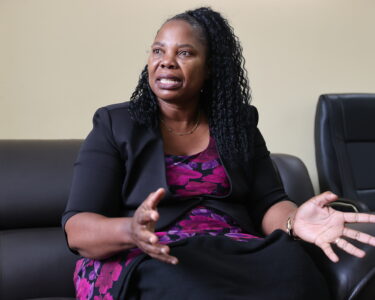For nearly 50 years since its founding in the 1950s, David Whitehead Textiles (DWT) commanded all it surveyed. It supplied cotton products and textiles to both local and regional markets with great success. At its peak, it employed over 5,000 workers directly and even more indirectly in the upstream and downstream ends of the textile value chain. However, the bubble burst so dramatically in the mid-2000s, sending DWT spinning into oblivion. Luckily, and thanks to the Second Republic’s creation of an enabling business environment in the country, a new rescuer in the shape of the ETG Group has taken over DWT and relaunched the company. In late October 2022, a team of Brick by Brick editors visiting the ETG subsidiary, AVC, in Chegutu, as part of their tour of the Mashonaland West Province, was taken around the DWT premises and had a chat with Tendayi Chetse, DWT’s chief production officer, and Silas Kuveya, DWT’s human resource manager, about the company’s past and present, and what future lies ahead of it.
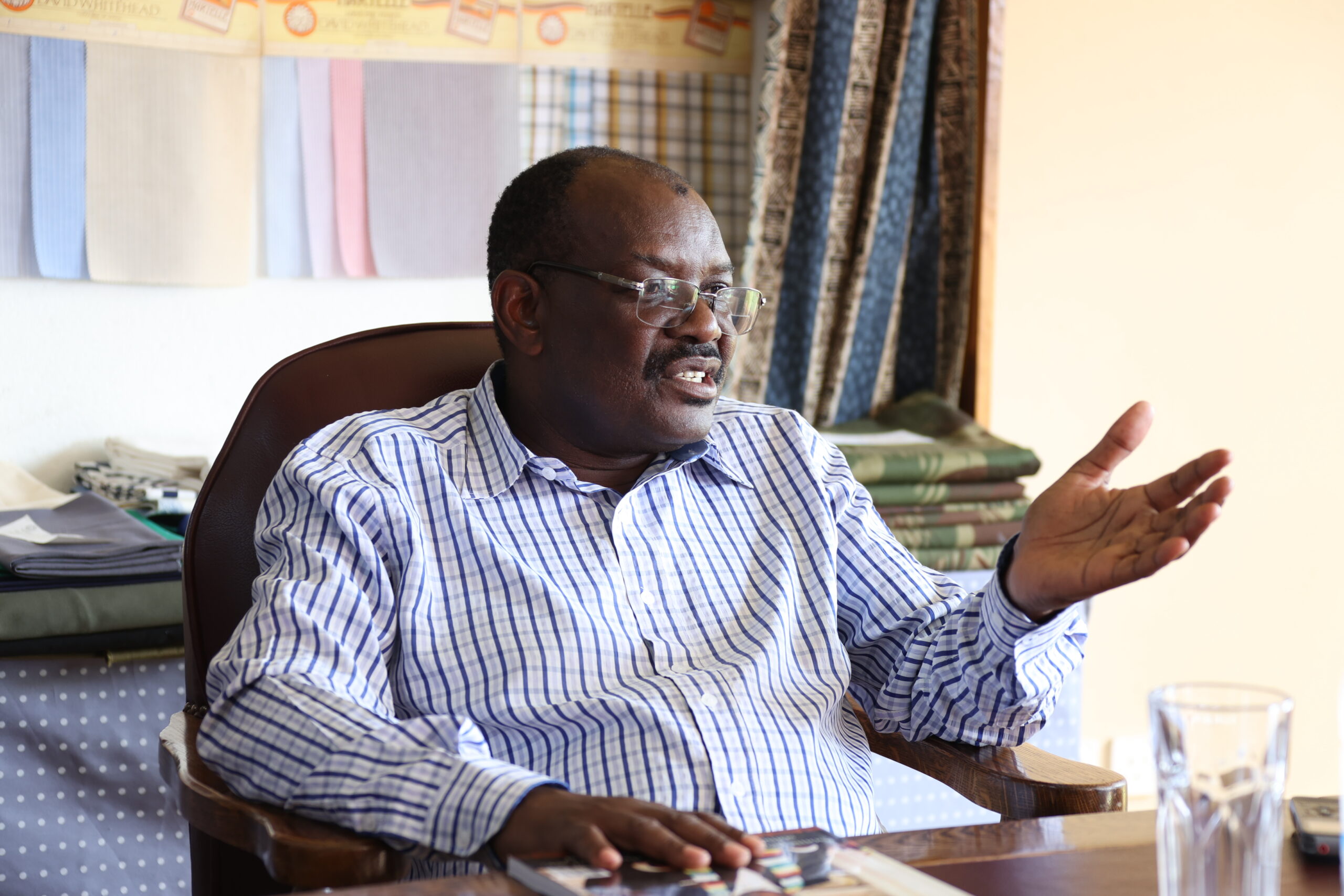
Tendayi Chetse told the Brick by Brick:
At the moment, we are busy upgrading our machinery, so we are removing the old machinery to create space for the new machines that are coming. Most of the old machines are going to be replaced with new ones. Only a few machines will be refurbished. Chegutu [the head office of DWT] is going to get 36 brand new looms, and we will be getting yarn
from Kadoma [from DWT’s spinning factory] to weave into fabric at Chegutu. Kadoma would get the lint from Agri Value Chain (AVC) in Chegutu.
In the 1980s and 1990s, the company was operating at full throttle. Then there was a management buyout around 2002. Things were operating well at that particular time, but afterwards things started to deteriorate until the company went into a first era of judicial management in 2006.
The judicial manager found an investor for the company who took over in 2008, but this investor didn’t quite resuscitate the company as such. In fact, the company continued on a downward trend until again it went into another era of judicial management in 2014. The company started operations again but it was intermittent. We would run for about 6 months, and production would stop for the next 6 months, and it will run for another 6 months and stop for the next 6 months.
The reason for the stoppages was because of the lack of funding (the working capital). Then the judicial manager embarked on a sourcing for an investor which led to AVC taking over David Whitehead. This was granted in April 2019, but the agreement was signed in September 2019, and the judicial manager finally left in April 2022.
Since the company fell into these judicial management eras, production has never been the same because there was no meaningful upgrade of machinery. The machinery we had was bought a long time ago, some dating back into the 1970s and 1980s. What we called “the latest machines” came in the 1990s, but those were very few. So in general, the machinery that we had was all antiquated, hence the drive by the current investor, AVC, to actually upgrade the machinery by replacing the old ones with brand new machines, almost in its entirety.
At the moment, the spinning machines in Kadoma are being replaced, and the machines in the Chegutu division are also going to be replaced. Already we have started receiving new machinery in Kadoma, but we are yet to receive any machines in Chegutu. We have been advised that some of the machines are ready for shipment. We are looking forward to receiving them in January 2023 or thereabouts.
According to what we’ve been advised, the whole investment portfolio between Kadoma and Chegutu is in the region of about US$20m. The President commissioned the relaunched David Whitehead on 5 October 2022.
It really goes without saying that the coming of the new investor has sparked a lot of confidence in people. This community and the Kadoma community have always been dependent on David Whitehead from a family point of view and a business point of view. A lot of businesses are dependent on David Whitehead being in business. Even the Chegutu local authority and various entities such as ZESA, are all largely dependent on companies like David Whitehead running.
So the renewal by AVC has met with a lot of enthusiasm. People now have confidence that they can find employment. We have a lot of unemployed people in the Chegutu and Kadoma communities who were largely employed by the likes of the former Cotton Marketing Board which became Cargill, which is now AVC, and David Whitehead being the largest employers here.
So yes, the workforce, the people in general, and the business community in both Chegutu and Kadoma are all looking forward to the revival of David Whitehead because there will be a lot of benefits for all of them.
We will bring back some of the old employees, but unfortunately some are late [dead] now. Some are also very old, in which case they have to be replaced with new blood. But where we need skills, even if people are old they can still be taken on contract basis so that they can impart knowledge to the new generation. By so doing, there can be continuity of operations in the company. In terms of real numbers, we are looking at employing 600 workers in total at Chegutu and 450 at Kadoma.
Despite several false-starts in the past to resuscitate the company, we are very confident of success this time around, in the sense that revival revolves around the availability of funds or funding. The way the new investor has started its projects, the way things are going, the way we’ve seen things being bought, the meetings that we’ve held with suppliers and so on, the commitments that have already been made, for example the machines that are already coming, remember the machines would not come until they have been paid for, so we can see that the investor’s financial standing is sound and that is key to reviving a company.
The revival cannot be just a word of mouth without tangible things that you can actually see. That is why I say people have got confidence based on the availability of the necessary funding. That alone gives people confidence that this time around we are on the right path.
Silas Kuveya chipped in:
When David Whitehead was at its peak, I was here but not here as such, because I was then in the trade union but working very close with the textile industry. I have been in the textile industry for 34 years, so I know the operations of David Whitehead from a long time ago.
David Whitehead was one of the biggest employers in the textile industry. It used to employ something like 5,000 workers. So when you lose 5,000 employees or members as a trade union, it affects their livelihoods and their family members. It had a big impact because it just happened at once.
After the management takeover, the retrenchments started in 1998. The first judicial management was in 2006 but it did not work, hence the company operated outside judicial management briefly from 2008 to 2009, and in 2010 it was brought back into judicial management.
So workers were affected, the communities in Chegutu and Kadoma were affected. Now everyone in the communities is looking forward to the revival. We have started receiving a lot of applications for employment from the communities. There are people who are looking forward that maybe they will be considered. So it is something that is going to make a very big impact.
Tendayi Chetse continued:
Regarding recouping our market share, we have made a lot of consultations. We have sort of tested the market, and we are quite confident that we will retain quite a chunk of it. If you look at school uniforms, David Whitehead was supplying between 90% to 95% of all the uniforms that you see in the country. But because of our temporary disappearance from the market, people were finding alternative sources.
But most of the designs for school uniforms are traditionally David Whitehead-developed designs. They are ours. Some were made specifically for certain schools, and others were made for a number of schools and so on. So what people were now doing was that they would go to places like China and copy our designs. But when you copy something it can never be like the original.
So even when we have not been producing, we still get a lot of enquiries almost on a quickly basis. Even this week I got enquiries from customers. I think our biggest strength as David Whitehead has been our quality, the quality has always been very good and that is why people liked our fabric.
In general, we have big customers like Bata, they are eager to get fabric from us. The police, the army, the prisons, and all the other workwear manufacturers are also eager to get fabric from us. So the market is there, but obviously now we also need to move with the times because there is also a shift from 100% cotton in terms of workwear to polycotton or 100% polyester.
Some work-suits are now 100% polyster. So we’ve made provision for that, and we’ve planned accordingly so that we don’t stick to the traditional only but also move with the times to make sure that we give the market the products they are looking for.
So, basing on the enquiries that we always receive, even from as far as South Africa and so on, I think the market will be there, and as soon as we tap it, it will just grow back to our original. We’ve had meetings with a certain big customer, he is a big customer in terms of school uniform suppliers and workwear and so on. The quantities that he was talking about can even sustain us without supplying to anybody. So I have got confidence that the market is there.
So, when exactly will David Whitehead start kicking so that people may say now we are up and running? Well, I am not in a position now to give an exact date. But our plans are to have received the machines, install them, and get running around June 2023. This is what has been talked about.

